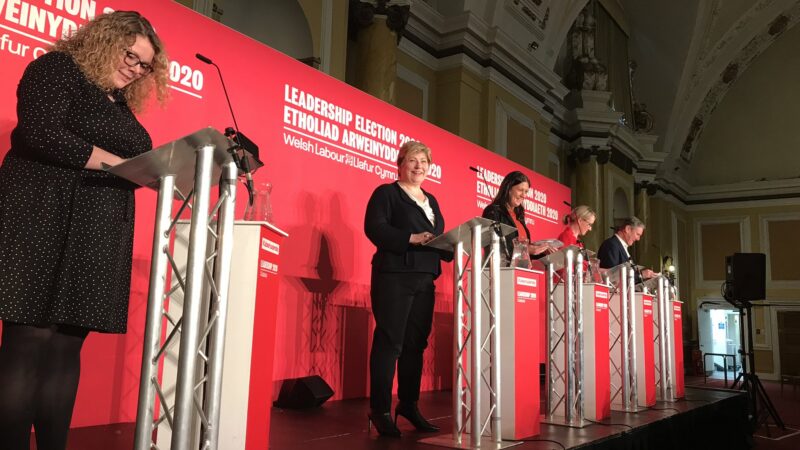
Devolution predictably took up a lot of time in the debate in Wales today with all of the candidates broadly supportive. Frustratingly, specifics on what this would look like were still lacking. Lisa Nandy emphasised that Labour would have to fight for it across the country, not just in Wales. Keir Starmer and Emily Thornberry both spoke about “federalism”, with the former also urging members to consider devolution as not just a process of handing powers from Westminster to another government but also into people’s hands. Thornberry stressed that “there is something in arguments for a quasi-federal state and we need to be talking about that”. Rebecca Long-Bailey went the furthest to suggest Wales should have the right to devolve across all policy areas, specifically including foreign affairs and defence.
Long-Bailey and Nandy had the chance to spar over open selections, which was refreshing given how the format restricts the ability of the contenders to interact. And it proved illuminating for members in showing their positions in relation to one another. Asked about unity in the party, Nandy said she wanted to create an “empowered democratic movement”, which is not reduced to a “nonsense debate focusing on getting rid of Labour MPs”. She also condemned what she called “stitch ups” where friends of the leadership became candidates “over and above the choice of local party members”. Long-Bailey answered the challenge directly as she happened to be next and said: “We shouldn’t have top-down selections of our MPs. That’s the whole point of having open selections, so that our members are empowered to do that.”
The audience got fewer specifics from Starmer and Thornberry on party democracy as both chose to emphasise culture when asked about Labour unity. They did not join in on the discussion about open selections. Instead, Starmer encouraged members to “look outwards not inwards” and reiterated the line he’s been emphasising throughout the contest: that the party needs to “pull together”.
Welsh independence proved an interesting dividing issue for the candidates. Asked where the party should stand on a referendum, Long-Bailey and Nandy both agreed that Labour should not stand in the way if the Welsh Assembly came to the decision to hold one. Starmer said he didn’t “accept the premise” of the question and told members not to accept a “binary choice” between the status quo and independence, in Scotland or in Wales. Again he confirmed his strong support for the union but we didn’t get any more detail on his plans to further devolution and head off nationalist movements. Thornberry focused instead on the way in which the UK Labour Party interacts with Welsh Labour. This proved to do well for her throughout the debate and she won a couple of big laughs and long rounds of applause from those present. Thornberry told members that “London has not had much respect for Welsh Labour” and went on to commit more money for the party in north Wales.
In fact, the Islington MP probably had the best of it in terms of being well received by the audience, also picking up a laugh referring to the “horrible wet damp hands of Donald Trump”. She seemed to really enjoy the debate and showed that she’s still very much gunning for it in the contest, despite being the only one not to have received the required nominations from local parties or trade unions. She closed by imploring members to broaden the debate by putting her name on the ballot and, with lots of local constituency parties yet to nominate, we could well still end up with four choices for leader in the final vote.




More from LabourList
Restoration announce recommendations for NEC candidates
‘Factionalism at the top is weakening Labour – and handing a gift to Reform’
‘Europe must stand strong on its own as US security guarantees grow conditional’